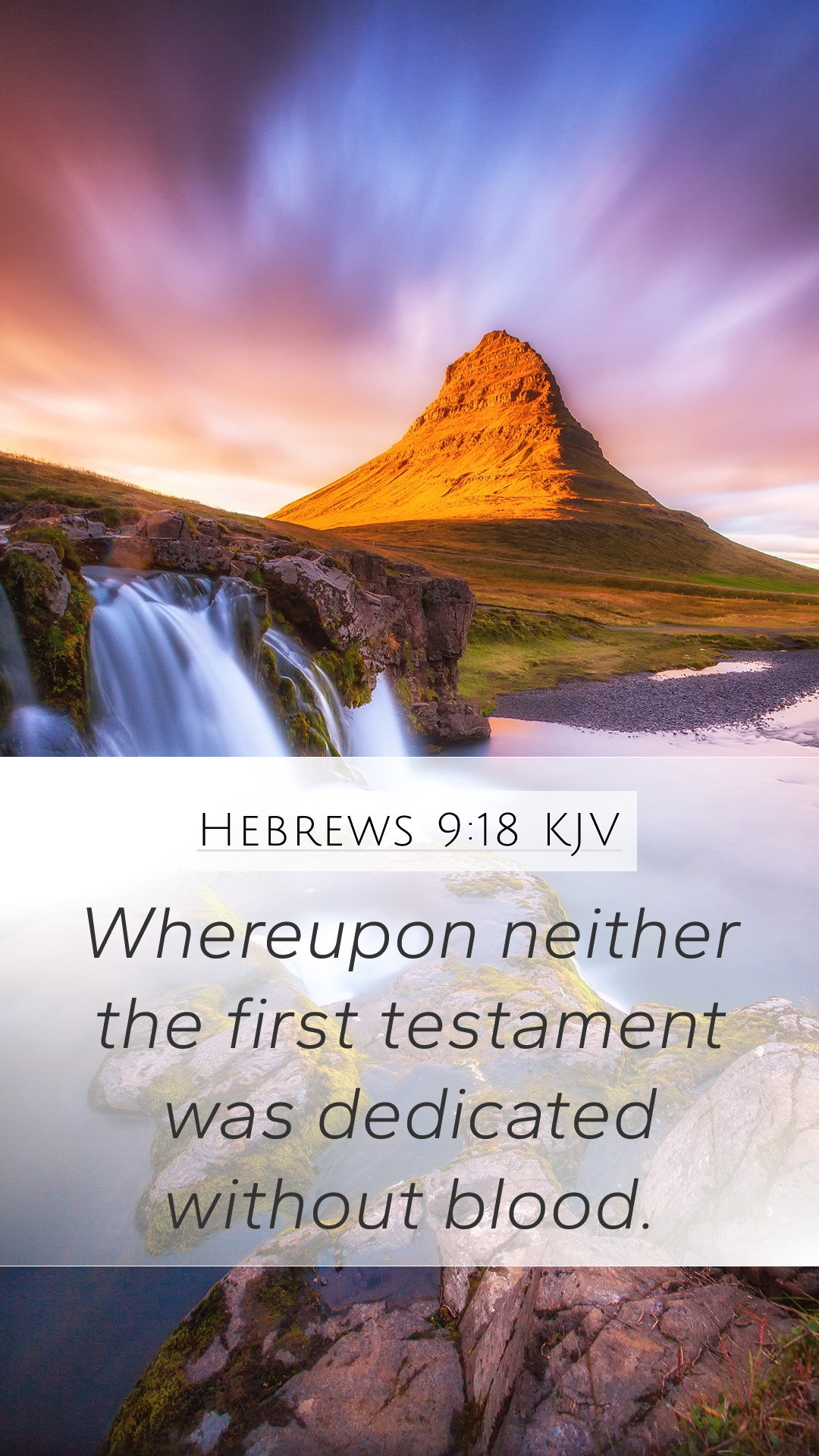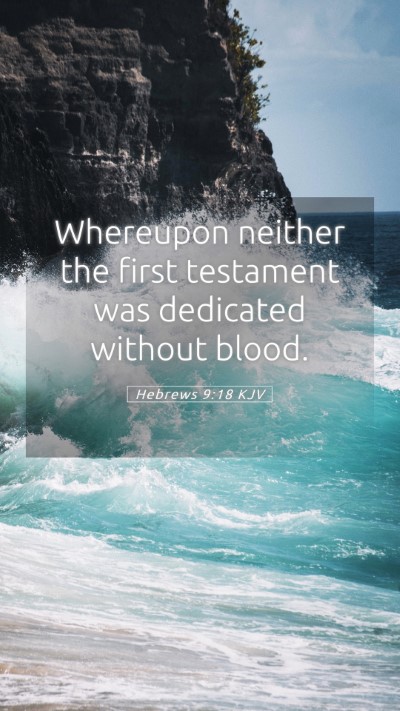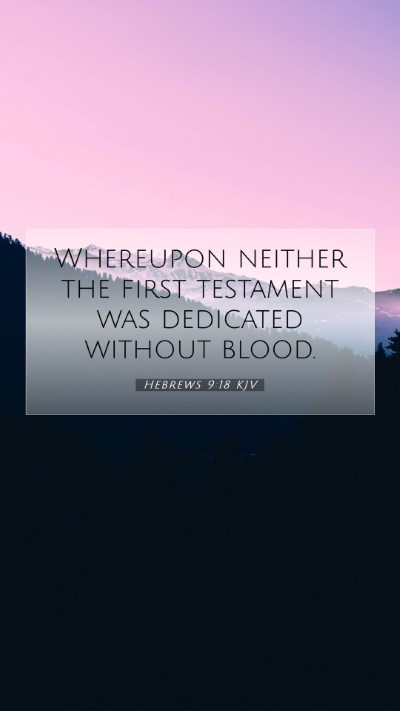Bible Verse Meaning and Commentary on Hebrews 9:18
Hebrews 9:18 states, "Whereupon neither the first testament was dedicated without blood." This verse is critical in understanding the significance of sacrificial offerings and the role of blood in the covenant relationship between God and His people.
Overview of Hebrews 9:18
This verse reflects on the establishment of the first covenant, highlighting that blood was an essential component of its dedication. The author of Hebrews underscores the necessity of sacrifices and bloodshed in the context of religious rites, drawing parallels to the New Covenant established by Jesus Christ.
Insights from Public Domain Commentaries
-
Matthew Henry's Commentary:
Henry emphasizes that the shedding of blood was a requirement for the inauguration of the covenant, signifying atonement and the seriousness of sin. The Old Covenant necessitated sacrifices that pointed towards the ultimate sacrifice of Christ, which would fulfill and supersede those earlier rites.
-
Albert Barnes' Notes:
Barnes connects this verse to the broader theme of the Book of Hebrews, which discusses Christ as the surpassing High Priest and the ultimate sacrifice. He notes that the shedding of blood was a legal requirement in ancient Israel, reflective of the seriousness of entering a covenant with God, thus setting the stage for understanding the finality of Christ’s sacrifice.
-
Adam Clarke's Commentary:
Clarke elaborates on the implication of blood in covenant-making, explaining how it symbolizes life and establishes a bond between God and humanity. He also points out that the New Covenant, ratified by Christ’s blood, offers a more profound relationship with God where grace supersedes the law.
Understanding the Theological Implications
The mention of blood in Hebrews 9:18 highlights several key theological insights:
- Atonement: The necessity of blood signifies the atonement for sin, central to the narrative of salvation.
- Old Covenant vs. New Covenant: This verse sets a foundation to understand the transition from the Old Covenant, which required continual sacrifices, to the New Covenant established by Christ, who made a one-time sacrifice for all.
- Significance of Sacrifice: Sacrifices were not merely ritualistic but served to signify the gravity of sin and the desperate need for redemption.
Application in Christian Life
Hebrews 9:18 teaches us about the depth of God's commitment and the costly nature of grace. As believers, it encourages us to:
- Recognize the seriousness of sin and the grace offered through Christ’s sacrifice.
- Value the relationship we have with God through the New Covenant, characterized by forgiveness and redemption.
- Engage in Bible study to deepen our understanding of the significance of sacrifices in the Bible and how they relate to our faith today.
Cross References
This verse relates to several other scripture passages that provide further insight:
- Exodus 24:8: Discusses Moses sprinkling blood to establish the Old Covenant.
- Matthew 26:28: Jesus declares His blood, shed for many, as a new covenant.
- Hebrews 9:22: States that without the shedding of blood, there is no remission of sins.
Conclusion
Hebrews 9:18 serves as a pivotal verse in understanding the thematic elements of sacrifice and covenant in the Bible. Studying this verse through various commentaries allows believers to gain deep insights into the sacrificial system and its fulfillment through Jesus Christ.
For those involved in Bible study groups, online Bible study, or seeking Bible study resources, this verse serves as a foundational text when exploring the themes of atonement, sacrifice, and covenant in Scripture.
Further Study
For a more profound understanding, consider exploring:
- Bible study guides focusing on sacrificial themes.
- Historical context of the Old Testament sacrifices.
- Biblical exegesis on New Testament revelations of the covenant.


